

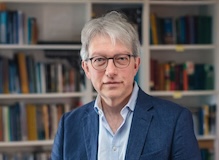
We talk to professor, author and lecturer Paul S. Williams about the challenges of discipleship in a fast-paced world, the pressure of secularism, and what it means to have a relevant faith<
.jpg)
Does a renewed interest in a ‘Christian past’ automatically lead to an openness to the gospel? Does undoing ‘woke’ paradigms necessarily mean that there is a genuine interest in the values of Jesus? In the current cultural shift, the challenge for Christians in Europe is to continue to be uncomfortable for those in power.
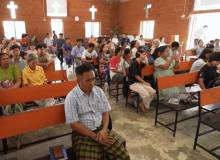
We must pray for wisdom and humility as we support those leaders who navigate challenges we in the West may never fully understand.

As the church in Germany and in the West in general struggles with secularisation and decline, Lausanne reminded me: the Church is alive and vibrant.
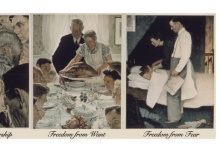
The instinct to withdraw into isolationism and nationalism is understandable, yet it plays into the hands of authoritarian, anti-democratic forces.
.jpg)
Wisla in Poland was a hustle and bustle of conversations fostered by the extensive programme of the European Leadership Forum conference. These were the highlights from our point of view.

What are the spiritual and theological characteristics of the Russian-speaking diaspora and what explains their tendency to form their own congregations?
.jpg)
Evangelical churches in Romania and Croatia remain connected to those who emigrate. Christians are encouraged to have a missional mindset and to hold on to their Christian values as they start a new life in Western Europe.

Mission will be polycentric when the power structures shift and African, Asian, and Latin American Christians can participate in their own ways, with their own resources.
.jpg)
Could it be that we tend to look at persecuted Christians with a mix of concern and pity because mission for the modern church often begins from the centers of power?
.jpg)
Around 1980 the center of gravity of the church had moved out of the West into the Majority World. With this shift, some of the relative strengths and weaknesses of Western Christianity have become increasingly clear.
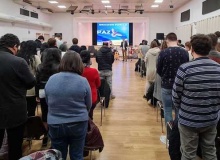
Over 2.3 million have left Ukraine since the start of the Russian invasion two weeks ago. Evangelical congregations on the other side of the continent connect to welcome families fleeing the war.

An interview with Vlady Raichinov (Bulgaria) and Marc Jost (Switzerland).

A critique of Western Christian leadeship in light of global trends. An article by Mary Ho.
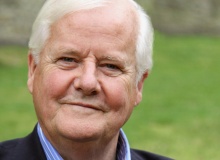
Cultural analyst Os Guiness speaks about the issues of truth, freedom, and the historic roots of emerging ideas in the Western world. An interview by Norwegian journalist Tore Hjaelmar Saevik (after brief introduction in Norwegian).

A Pew Research Center survey shows that “people in emerging economies tend to be more religious and to say that belief in God is necessary to be moral”.

Missiologist Jim Memory looks at the crises and opportunities Europeans have faced in the last decade.

Jim Memory analyses the main issues that have changed Europe in the 2010-2019 decade. How should Christians live in a continent that has lost its soul?

Terry English, of youth ministry Josiah Venture, says discipling young people is “walking alongside them, helping them understand that their faith is about a relationship with Christ”.

For Western European churches mission could be translated as: “Let’s go to other countries to serve”. However, for most Eastern European countries missiology is merely similar to theology.

The peoples in the east have resisted militant atheism. We, the west, are under another form of atheism which is a sort of political agenda.

A Pew Research report shows that Christian affiliation has declined in Western Europe, while substantial shares in Central and Eastern Europe believe in God and have greater religious commitment.

“There is an inexhaustible marketplace until the church throughout Europe courageously takes up its responsibility to take missional risks for the kingdom”, says Andy Stevens.

“We should allow people to have robust debates about their ideas”, says Christel Lamère.

Researchers are able to show the “stunning explosion of zinc fireweorks” after a human egg is activated by a sperm enzyme.

Las opiniones vertidas por nuestros colaboradores se realizan a nivel personal, pudiendo coincidir o no con la postura de la dirección de Protestante Digital.